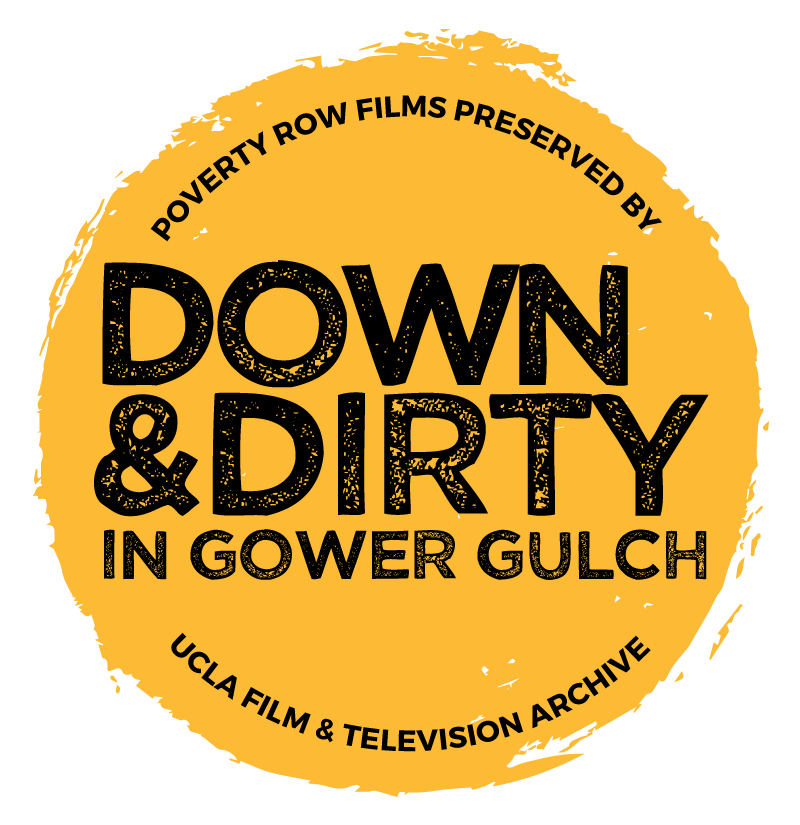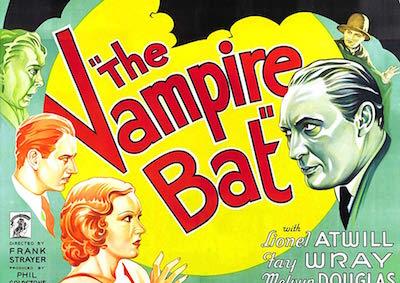Poverty Row Films Preserved by UCLA Film & Television Archive
Hosted by Raleigh Studios, located at 5300 Melrose Ave., Los Angeles.
While the major Hollywood studios in the classical period—Paramount, Metro-Goldwyn-Mayer, 20th Century Fox—controlled first-run theaters, numerous independent studios serviced what was called the “states rights” market: independent rural cinemas, third- and fourth-run movie houses in the major cities. They produced what were called “B films,” which ran at best as the second feature behind the major studios’ “A films,” whether westerns, crime dramas, horror or comedies. Low-budget independent studios, like Grand National, Mascot, Mayfair, Monogram, Producers Releasing Corporation, Reliance, Republic and Tiffany, also supplied serials for the Saturday matinee market. Most of these independents were housed in rental studios off Gower Street in Los Angeles, often referred to as “Gower Gulch.” Unlike the major studio films, which were budgeted in the hundreds of thousands, if not millions of dollars, so-called “Poverty Row” pictures were usually made for $100,000 or less, and shot on five to ten day shooting schedules. Despite their exceedingly low budgets, resulting in often cheesy sets and under-par acting, the Poverty Row studios had a surprising degree of freedom to tackle controversial subject matter that the majors would not have touched, such as venereal disease, the psychology of kidnap victims and quackery in the medical profession.
The lack of budget also gave creative film directors, like Edgar G. Ulmer and Lowell Sherman, the opportunity to turn minimal resources into expressive devices, developing a kind of visual shorthand that looks very different than a big-budget MGM film. As Myron Meisel notes in his essay in King of the Bs: “Ulmer transformed his camera into a precise instrument of feeling, and his convulsive abstractions of screen space intensify that feeling by investing it with particular gestures of light, shadow, form, and motion that define his own director’s soul, and none other.” On the other hand, producers would often pad their films with stock footage, which they could either purchase cheaply or had available in their own stock libraries, reutilizing car chases and other action scenes from previous films.
UCLA Film & Television Archive is dedicated to preserving films of all kinds, from the biggest-budget extravaganzas to the lowest-budget exploitation titles. With the major entertainment companies now preserving their own work, the Archive has moved increasingly towards preserving independent and Poverty Row titles, many of which are no longer copyrighted, because their producers never registered the films to begin with or lost rights because they went bankrupt. These “orphan films” are however worthy of restoration and exhibition. They visualize many of the repressed or forbidden themes that preoccupy the nether regions of the American psyche. This series is an abridged version of the Museum of Modern Art’s major retrospective of Poverty Row films preserved by the Archive. Get ready for a wild ride!
Jan-Christopher Horak, Director, UCLA Film & Television Archive
Special thanks to: Dave Kehr, Department of Film, Museum of Modern Art, New York.
Learn about sponsorship and support opportunities here.







 Mobile Navigation
Mobile Navigation







